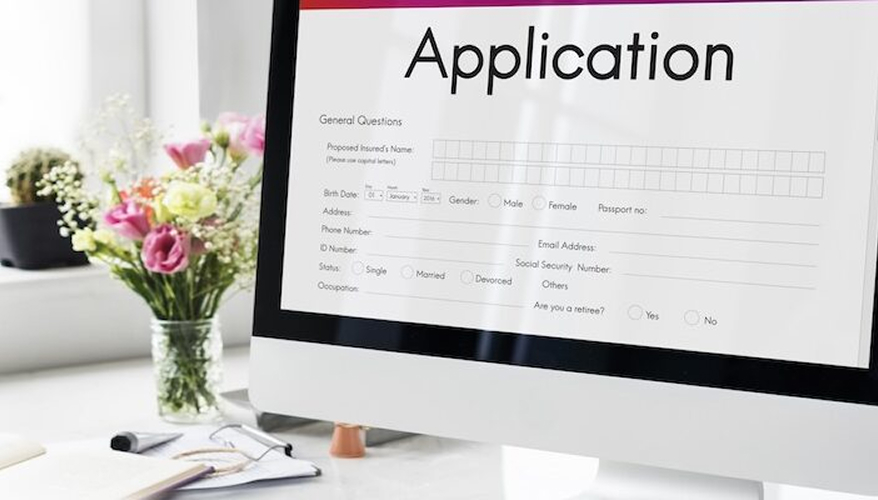Are you considering job changes while your Permanent Residency (PR) application is in process with the Immigration and Checkpoints Authority (ICA) of Singapore? It’s a common concern among individuals seeking to settle in Singapore permanently. The PR application process is a significant step towards establishing roots in the country, and any changes in your circumstances, including employment, can raise questions and uncertainties.
Here, we’ll explore the implications of changing jobs during the PR application process with ICA, including what you should consider before making a decision and how it could affect your application.
Understanding the PR Application Process with ICA
The process of obtaining a Permanent Residency in Singapore involves several steps, including submitting an application, providing necessary documents, and undergoing assessment by the ICA. One crucial aspect of this assessment is evaluating the applicant’s ability to contribute to Singapore’s society and economy. Employment history and stability are often key factors in this assessment.
Can You Change Jobs During the PR Application Process?
Yes, you can change jobs while your PR application is being processed by ICA. However, it’s essential to understand the potential implications of such a decision on your application status.
Considerations Before Changing Jobs
Before making a decision to change jobs while your Singapore PR application is pending, consider the following:
1. Impact on Application:
Job changes can impact your PR application because the ICA assesses applicants based on their potential contribution to Singapore’s economy and society. If your new job differs significantly from your previous one, it may raise questions about how well you align with these criteria. However, if your new position still allows you to demonstrate your skills, contribute to the economy, and integrate into Singaporean society, it may not pose a significant issue.
2. Document Updates:
Whenever there is a change in your employment status, you must update your application with the ICA. This involves submitting updated employment letters or contracts to reflect your new job. Ensuring that your documentation is accurate and up-to-date is crucial for maintaining transparency with the immigration authorities.
3. Stability and Continuity:
Frequent job changes may raise concerns for the ICA regarding your stability and commitment to Singapore. However, if your job change is part of a well-thought-out career progression or aligns with your long-term goals, it’s essential to explain this to the ICA. Demonstrating that your job change contributes to your professional development and enhances your ability to contribute to Singapore’s economy can help alleviate any concerns about stability.
4. Legal Obligations:
Ensure that your job change complies with Singapore’s employment laws and regulations. This includes obtaining the necessary work passes for your new position, especially if you are transitioning to a new employer. Failing to comply with legal obligations could not only jeopardise your PR application but also lead to potential legal repercussions.
How Job Changes Could Affect Your PR Application
Job changes during the PR application process could impact your application in several ways:
1. Assessment Criteria:
The ICA evaluates PR applications based on various criteria, including employment stability and contribution to the economy. A sudden job change may prompt the ICA to scrutinise your application more closely. They may assess whether the new job aligns with your previous employment history, skills, and overall suitability for permanent residency in Singapore. If the new job differs significantly from your previous one or raises concerns about your stability and commitment, it could affect the outcome of your application.
2. Processing Time:
Updating your application with changes in employment status may prolong the processing time. The ICA will need to review the updated documentation related to your new job, such as employment letters or contracts. This additional review process can delay the overall assessment of your application, as the ICA may need more time to evaluate how the job change impacts your eligibility for permanent residency. It’s essential to factor in potential delays when planning your timeline for obtaining PR status.
3. Interview or Clarifications:
In some cases, the ICA may request an interview or seek clarification regarding your job change. They may want to understand the reasons behind your decision to job changes and how it relates to your overall application. Be prepared to provide explanations and evidence to support your decision, such as detailing how the new job aligns with your long-term career goals or how it enhances your ability to contribute to Singapore’s economy. Demonstrating clarity and coherence in your explanations can help alleviate any concerns the ICA may have and strengthen your case for permanent residency.
Steps to Take If You Decide to Change Jobs
If you decide to change jobs while your PR application is pending, follow these steps:
1. Update ICA:
As soon as you decide to change jobs, it’s crucial to inform the ICA of this change promptly. Submit any required documentation, such as updated employment letters or contracts, to reflect your new employment status. This ensures that your application remains accurate and up-to-date, minimising any potential delays in the processing of your PR application.
2. Provide Explanation:
If your new job differs significantly from your previous one, it’s essential to provide a clear and detailed explanation to the ICA. Highlight how the new position aligns with your long-term career goals and contributes to Singapore’s economy. Emphasise any relevant skills or experiences that make you a valuable asset to your new employer and to Singapore as a whole. Providing a compelling explanation can help the ICA understand the rationale behind your job change and strengthen your case for permanent residency.
3. Be Transparent:
Maintaining transparency throughout the process is key to building trust with the ICA. Be open and honest in your communications, and be prepared to answer any queries or provide additional information if requested. Transparency demonstrates your willingness to cooperate with the authorities and ensures that your application is handled efficiently and accurately.
4. Follow-Up:
After informing the ICA of your job change, it’s essential to follow up regularly to inquire about the status of your application. Keep track of any updates or requests for additional information from the ICA, and respond promptly to address any concerns they may have regarding your job change. Proactive communication and follow-up demonstrate your commitment to your PR application and can help expedite the process.
Final Thoughts
Changing jobs during the PR application process with ICA is possible, but it requires careful consideration and adherence to guidelines. By understanding the implications of your decision and taking the necessary steps to update your application, you can navigate this process smoothly. Remember to communicate openly with the ICA and provide relevant information to support your application. With diligence and transparency, you can pursue your career goals while progressing towards permanent residency in Singapore.
Engaging an immigration consultant in Singapore can provide valuable assistance throughout the PR application process, especially when navigating changes such as job transitions. These professionals are well-versed in the intricacies of Singapore’s immigration policies and can offer expert guidance on how to manage job changes effectively within the context of your application. They can help you understand the specific requirements of the ICA, ensure that your documentation is accurate and up-to-date, and provide strategic advice on how to present your case in the best possible light.
By partnering with an immigration consultant, you can gain peace of mind knowing that you have expert support to help you navigate any challenges that may arise during the application process, including changes in employment status. With their assistance, you can increase your chances of a successful outcome and continue on your journey towards securing permanent residency in Singapore.








